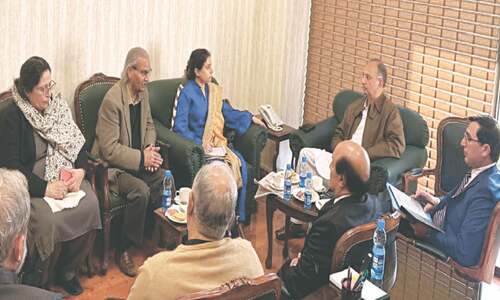ANKARA: Japan and Turkey on Friday signed a long-awaited deal to build a major nuclear power plant on Turkey's Black Sea coast, a milestone for the Japanese nuclear industry as it recovers from the 2011 Fukushima disaster.
Turkish Prime Minister Recep Tayyip Erdogan hailed the $22 billion contract as a “very important step” that would transform bilateral relations with Japan into a “strategic partnership.”
A Japanese-French consortium won the giant contract to build Turkey's second nuclear plant, Japan's first successful bid on an overseas nuclear project since a tsunami wrecked the power station in Fukushima.
Turkey weathered criticism for teaming up with Japan in light of the catastrophe, but “despite that, we have taken this step,” Erdogan said.
“What happened at Fukushima upset all of us. But these things can happen. Life goes on. Successful steps are being taken now with the use of improved technology,” the Turkish premier added.
Like Japan, Turkey lies in a part of the world that is prone to earthquakes, making it essential that nuclear plants are designed to resist the effects of such events.
Japanese Prime Minister Shinzo Abe, who arrived in Turkey as part of a larger Middle Eastern tour, said that Japan had learnt important lessons from the 2011 catastrophe.
“Japan will share its experience and the lessons it has learnt and will contribute to the improvement of nuclear security at the highest level,” Abe said in comments translated into Turkish.
Abe and Erdogan also signed an agreement covering the peaceful use of nuclear energy.
The winning consortium includes the Japanese group Mitsubishi Heavy Industries and power company Itochu, the French energy company GDF-Suez and a Turkish company to be determined.
The French energy company Areva is to supply the plant's reactors in connection with Mitsubishi.
The Sinop plant is to comprise four reactors with a combined output of 4,800 megawatts. Construction is slated to begin in 2017, with the first reactor to be operational by 2023, an energy ministry official said.
Turkey, which relies heavily on gas and oil imports from Russia and Iran, wants to build a total of three nuclear power plants to reduce its dependence on foreign energy.
In 2010, Ankara struck a deal with Russia to build the country's first nuclear plant at Akkuyu, in southern Turkey.












































Dear visitor, the comments section is undergoing an overhaul and will return soon.